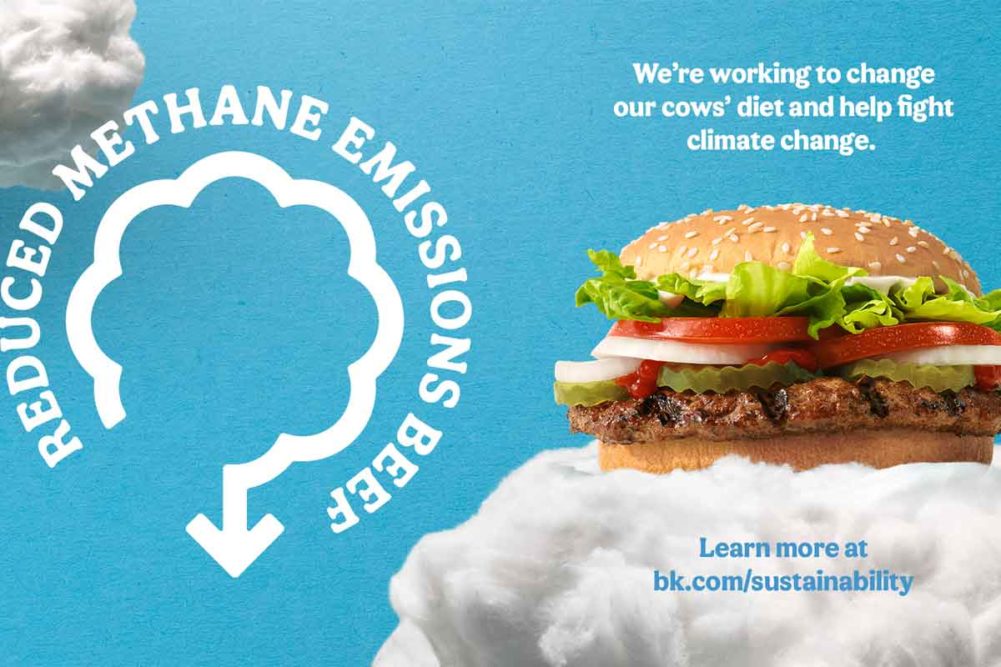MIAMI – Cows have a gas problem, but Burger King has an idea that might give them – and the planet – some relief.
The Burger King brand partnered with top scientists to develop and test a new diet for cows that helps them better digest their food and emit less methane gas. The company said initial study results suggest that adding 100 grams of lemongrass leaves to cows’ daily diet during their last four months helps them release less methane as they digest their food. The lemongrass diet reduces up to 33% per day, on average, of cows’ daily methane emissions during that three- to four-month period.
Burger King collaborated with top scientists Octavio Castelan, PhD, professor at the Autonomous University at the State of Mexico and Ermias Kebreab, PhD, professor at the University of California, Davis throughout the process to test and develop the formula.
“This initiative is part of our Restaurant Brands for Good framework. At Burger King, we believe that delicious, affordable, and convenient meals can also be sustainable,” said Fernando Machado, global chief marketing officer, Restaurant Brands International which is the parent company of Burger King. “We are making all our findings public. This an open source approach to a real problem. If the whole industry, from farmers, meat suppliers, and other brands join us, we can increase scale and collectively help reduce methane emissions that affect climate change.”
For a limited time, select Burger King restaurants in Miami, New York, Los Angeles, Austin, Texas, and Portland, Ore., and will offer the Reduced Methane Emissions Beef Whopper sandwich starting July 14. The patty is made with beef sourced from cows that emit reduced methane.
The Burger King brand also created an educational video detailing the problem and solution – which the company said makes a complicated problem fun to digest.


